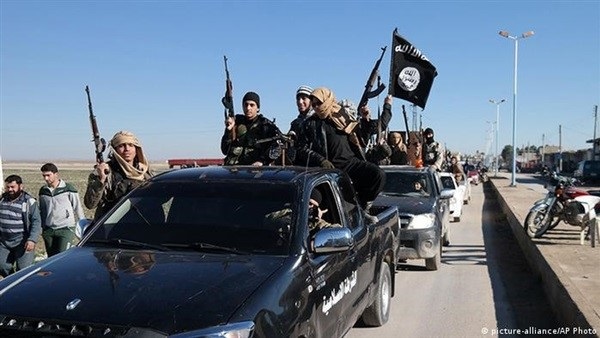Washington tighten noose around ISIS in Somalia

The US tries by all
means to tighten the noose around ISIS, especially at the Arab and African
levels.
It focuses on the
elements of the terrorist organization, particularly its most prominent
leaders.
The US Treasury
Department announces from time to time the imposition of sanctions on the most
prominent leaders and influential elements in the structure of the organization
in Arab and African countries.
ISIS minister
of finance
This comes within the
context of an announcement by State Department Spokesman, Matthew Miller, on
July 27.
Miller announced Washington's
inclusion of Abdiweli Mohamed Yusuf, the head of financial
affairs in ISIS Somalia on the terrorism list.
It said the ISIS
leader, also known as the minister of Finance of ISIS, assumed the post of head
of financial affairs of the terrorist organization in late 2019, and was
responsible for managing the revenues received by the organization in Somalia.
He noted that Yusuf
even played a role in facilitating the transfer of ISIS elements and the
delivery of foreign fighters, supplies and ammunition on behalf of the
terrorist organization in Somali territory.
The minister of Finance
of ISIS is one of the most prominent members of the terrorist organization.
He is the main
supervisor of the organization's financial affairs and also serves as the main
centre for disbursing funds to the branches of ISIS throughout the African
continent.
He also holds continuous
meetings with and provides reports on the organization's situation to the main
leaders of ISIS in Somalia.
Financial
leverage
It is worth noting that
during the first half of 2022, ISIS in Somalia achieved financial revenues of
about $2 million. In 2021, the organization achieved revenues of about $2.5
million, according to the US Treasury Department.
As usual, the terrorist
organization obtains these funds from extorting companies and businessmen, as
well as citizens, especially those working in the agricultural and livestock
fields, forcing them either to pay what the organization calls 'taxes', 'levies'
or 'royalties'.
In the light of the
above, the main question remains, will these Washington mechanisms succeed in
defeating the influence of ISIS?
To answer this
question, one can refer to a key rule put forward by some experts and political
analysts, which indicates that the organization will not die with the death of
its leader or by targeting its leadership by any means.
However, it may weaken
or reduce its activities until a restructuring process is carried out.
This forces countries
facing terrorism to focus on fighting the ideas of terrorist organizations and
working to defeat them, with all means and tools at their disposal.
At the same time,
international governments also need to provide support to countries suffering
from the threat of terrorism that threatens their security and stability.
Deep impact
On the extent to which
America's inclusion of the ISIS finance minister in Somalia on the sanctions
list affects the organization's activities, Hesham al-Naggar, a researcher on
the affairs of Islamist groups, says this will certainly affect ISIS, given
that Somalia is an extremely important station in the context of financing the organization
and supplying it with weapons and money.
"Any special
measure to restrict and undermine ISIS financial activity inside Somalia
significantly affects the movement of money and weapons to ISIS branches across
the world," al-Naggar told The Reference.







